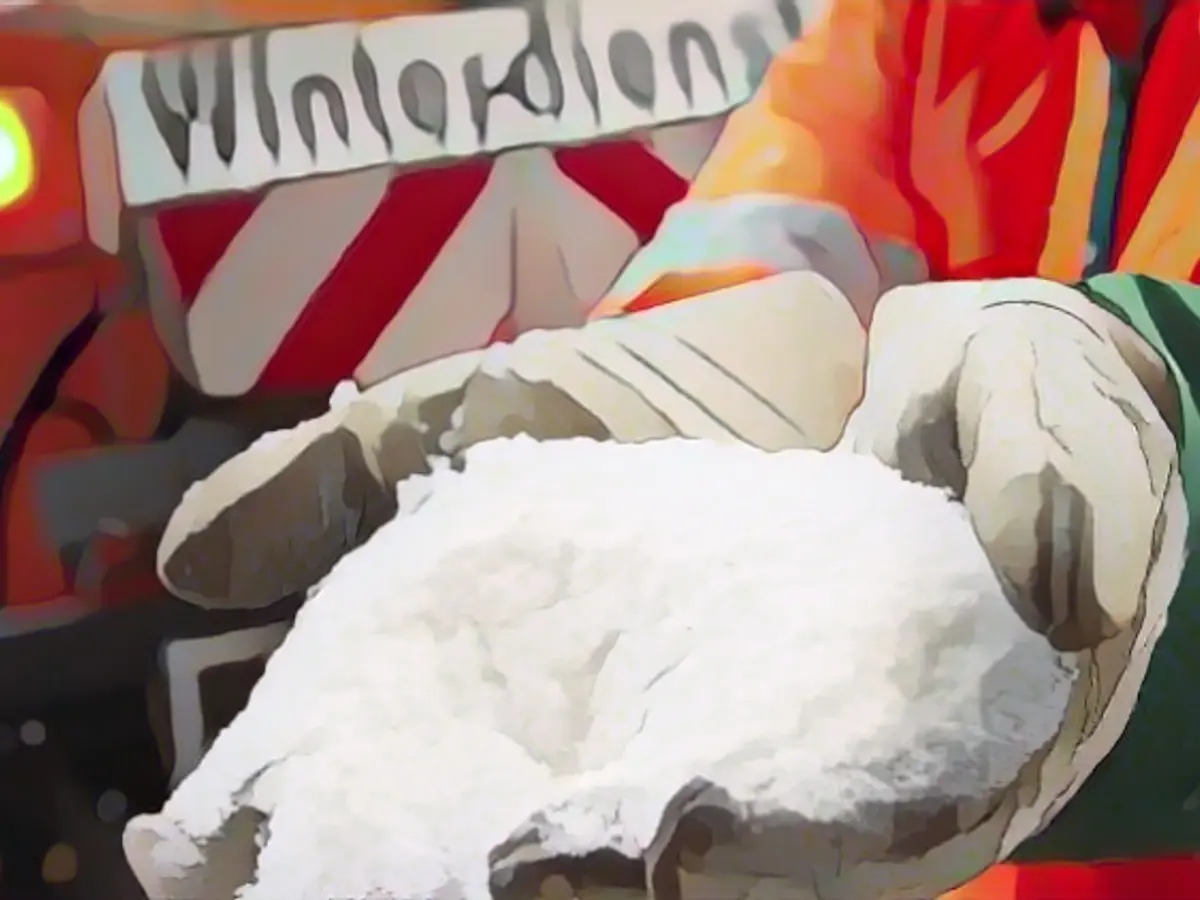This is how expensive it gets when you spread winter salt
It's getting fresh. Cold polar air is blowing winter into Germany, which can also bring ice and snow. Most local authorities transfer the duty to clear and grit sidewalks to the owners of adjacent properties. If you want to tackle the icy conditions with road salt, you should read up here.
It is one of the general duties of homeowners and tenants in winter: The sidewalk must be cleared of snow, ice and slippery conditions. Various means can be used for gritting. In the past, people were quick to use road salt, which melts snow and ice in no time at all. But be careful! In many cities and municipalities, the use of road salt is now prohibited and can result in severe penalties.
Up to 10,000 euros fine for disregarding the gritting ban
Anyone who cleans the sidewalk with salt despite a current ban is committing an administrative offense. Depending on the local authority, this can result in hefty fines of up to 10,000 euros. The exact amount is determined by each local authority. Therefore, the first tip: be sure to enquire about the applicable legal situation with the responsible municipality. Major cities in which a salt ban applies are Berlin, Duisburg, Freiburg, Hamburg, Karlsruhe, Lübeck, Mainz, Munich, Schwerin and Wiesbaden.
Many other cities also have a general ban, but there are some narrow exceptions. For example, it is often permitted to salt stairs and other critical areas, writes the Federal Environment Agency. There is no uniform regulation at federal or state level.
Here you can find the current legal situation in the municipalities: Where salting is prohibited.
These alternatives are available
Good alternatives to salt are not only available in municipalities with a gritting ban. Sand, gravel and grit are ideal for making sidewalks tread-proof. Clay or lava granules can also be used. The good thing is that sand, gravel and grit can be swept up and used again after the next thaw.
Only salt really thaws ice and snow, the alternatives do not get at the snow, they are called de-icing grit. This reduces the risk of slipping. When buying these alternatives, the "Blue Angel" indicates environmentally friendly products. Classic snow shoveling is also a guarantee for fall-free progress. The alternative gritting agents are usually available from DIY stores and garden centers.
What does the salt actually do to the snow?
Spreading salt lowers the freezing point. Adding salt simulates a thaw, so to speak. The snow thaws even at sub-zero temperatures. However, this physical trick has considerable side effects for nature.
Why salt is bad for the environment
First and foremost, salt is bad for the soil and therefore also for plants. Direct contact with the salt causes chemical burns. Worse, however, are the long-term effects: Due to the excessive salt content in the soil, the absorption of nutrients and water is made more difficult. In addition, nutrients are washed out with the salt. The fine roots of the trees die off, resulting in a lack of nutrients, also because the trees can no longer form a symbiosis with soil fungi due to the lack of fine roots. The closer the trees are to the road, the worse the damage. Avenue trees such as maple, lime and horse chestnut are particularly sensitive to salt.
The salts are also bad for buildings and walls. Decomposition occurs in the masonry. The use of salt is therefore particularly problematic in the vicinity of listed buildings. After all, the salt is not good for cars either - there is a risk of corrosion.
And the four-legged friends don't like it either, as the sodium chloride gets on their paws. The salt attacks the skin and bloody paws develop after a short time. Sand, grit or a shovel in your hand are therefore not only better for nature, but also for wildlife. Salt on the sidewalk is actually superfluous these days.
- Given the legal issues surrounding the use of road salt, it would be advisable to consult with a legal advisor before making any decisions regarding gritting.
- In cases where compensation for damages is sought due to slippery conditions caused by inadequate gritting, the type of substance used for gritting could become a crucial factor in the judgments made by the courts.
- The upcoming snowfall might present a challenge for homeowners, but using eco-friendly alternatives like sand or grit instead of road salt could help mitigate weather-related issues and protect the environment.
Source: www.ntv.de







